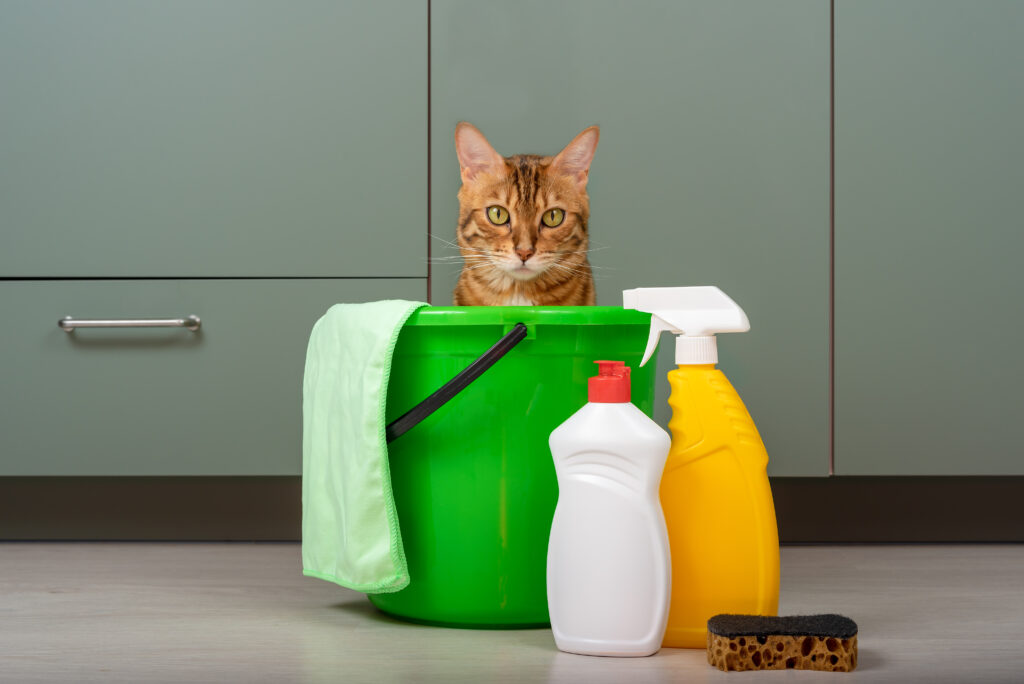Since the entire month of March is dedicated to poison awareness, with this week being National Poison Prevention Week, we thought it would be the opportune time to discuss household chemicals and your pets. Pet poisons can consist of everything from outdoor lawn chemicals to foods in our fridge, but how often do we overlook cleaning products as being potentially dangerous to pets?
Before you roll up your sleeves to tackle this season’s spring cleaning duties, here are some basic reminders about pet poison safety and how to keep your pet from being exposed to these noxious products.
Indoor Pet Poisons
Products we use throughout the home may be more harmful than we think. As a matter of fact, according to the EPA, household cleaners have a significant impact on the development of illnesses. Because our pets are smaller, exposure to these toxins put their health at greater risk and can result in cancer, anemia, and kidney and liver damage.
To protect your pet (and family), here are some safer alternatives to the perilous products and some suggestions for keeping your spring cleaning routine free from danger.
- Minimize your use of abrasive or chemically derived products, especially products containing bleach, ammonia, chlorine, and glycol ethers.
- Formaldehyde has been linked to certain pet cancers, yet many cleaning products and construction material contain this chemical—to avoid exposure, read the labels before purchasing cleaners and flooring products.
- Mothballs contain either naphthalene or paradichlorobenzene, both of which are extremely toxic to pets—opt for cedar blocks or moth-repelling sachets comprised of wood shavings instead.
- When you are cleaning out the garage, take extra care when moving antifreeze and other additives. Ensuring these containers aren’t leaking, and are stored in a cabinet or in another secure, pet-proof place. Make certain all spills or puddles are promptly cleaned up.
- Swap out old cleaning products with new pet-safe, biodegradable, and environmentally friendly products—better for your pet, your family, and the environment! There are lots of great options now. Or, DIY with some homemade, natural cleaning solutions.
- Rodenticides are often found in the home, especially in the garage and around trash cans, and can cause serious to life-threatening responses in your pet. Look for a safer way of dealing with the problem and make sure all rodenticides are carefully disposed of, if you have used these products in the past (and, keep the safety of wildlife and outdoor animals in mind with an animal-proof trash bin).
For information on common outdoor pet toxins, you may want to refer back to our blog post, Pet Toxins in the Great Outdoors. And, if you suspect your pet has ingested a poisonous substance or is showing signs of poisoning or reaction to a household chemical, please contact us for emergency veterinary care.


